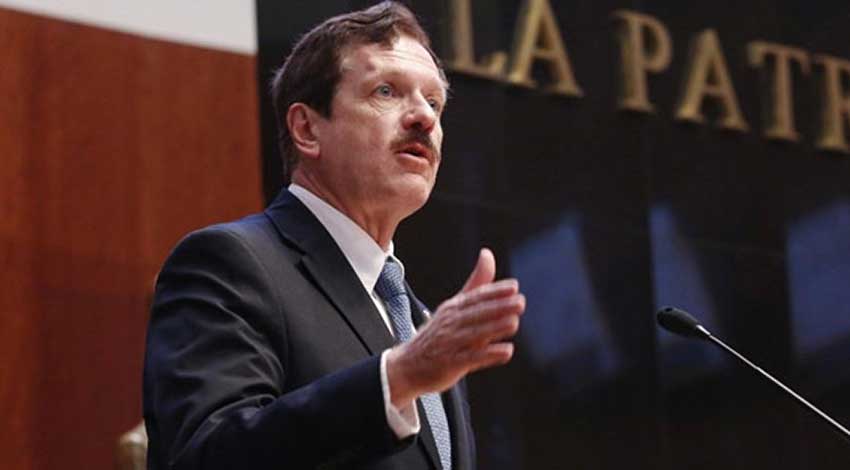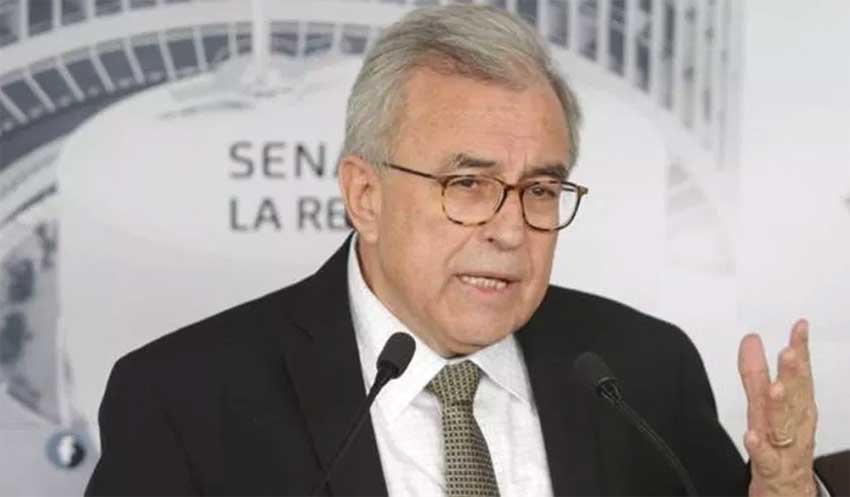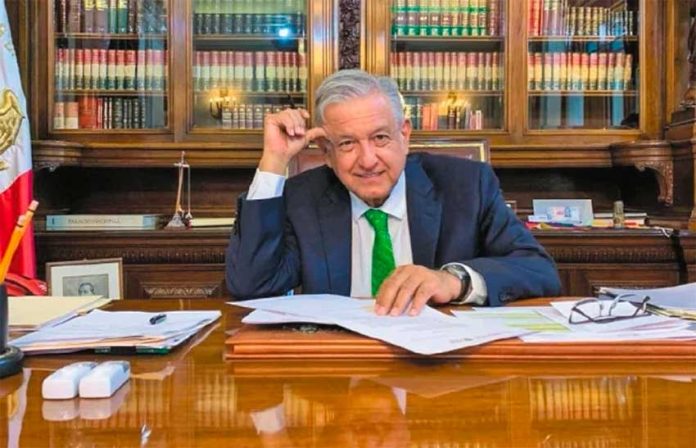President López Obrador has been widely condemned for instructing three government departments to suspend the education reforms implemented by the previous federal administration.
The president sent a memorandum yesterday to the secretariats of Finance (SHCP), Public Education (SEP) and the Interior (Segob) that directs them to ignore the legislation enacted by former president Enrique Peña Nieto while his own education plan is considered by Congress.
“While the process of dialogue doesn’t reach an agreement . . . authorities of the federal executive power will leave without effect all measures which have resulted from the application of the so-called education reform,” the memorandum said.
The president asserted that the teachers’ payroll will be managed by the finance department to prevent corruption and the education department will manage “teaching positions” to avoid them being bought and sold and reinstate teachers who were dismissed as a result of “punitive evaluations.”
López Obrador also said that Segob will release teachers and social activists who were unjustly imprisoned for opposing the education reforms, which he charged “hasn’t resulted in an improvement in the quality of education” and “has caused an undesirable polarization of society.”

Opposition parties, the business sector, legal experts and even a ruling party lawmaker quickly rejected the president’s move, arguing that it is unconstitutional.
Juan Carlos Romero Hicks, leader of the National Action Party (PAN) in the lower house of Congress, described López Obrador’s memorandum as “legally untenable” and signaled that legal action would be taken against it.
“To start, it’s not founded or justified and therefore lacks legal validity. It’s null and void, it’s an attack on the division and separation of powers, and the officials who comply with this instruction, which is illegal, could be subject to liability,” he said.
René Juárez, lower house leader of the Institutional Revolutionary Party (PRI), also said the president’s directive threatens the division of powers. He called on the leadership of both the Chamber of Deputies and the Senate to issue a declaration against the memorandum.
Citizens’ Movement (MC) lawmakers said that government officials are under no obligation to comply with the instructions because they are unconstitutional and warned that if bureaucrats did follow them, they could face criminal prosecution and even jail time.
Rubén Rocha Moya, a lawmaker for López Obrador’s Morena party and president of the Senate’s education committee, also spoke out against the president’s action, stating that the education reforms cannot be overruled by decree but must rather go through the proper parliamentary process.

Among the business leaders who condemned the president’s memorandum was Gustavo de Hoyos, president of the Mexican Employers Federation (Coparmex), calling it “. . . Illegal abrogation and a systematic violation of the law . . .”
Coparmex said in a statement that it was “regrettable that due to pressures from a section of a teachers’ union, the interest of society as a whole to improve the education system has been left to one side.”
The National Chamber for Industrial Transformation (Canacintra) said the memorandum was “clearly anti-constitutional, anti-democratic and infringes upon the division of powers.”
Canacintra president Enoch Castellanos pointed out that one person cannot be invested with two or more powers or sole legislative power unless the Congress grants “extraordinary authority” to the president.
Retired Supreme Court judge José Ramón Cossío Díaz also said the president’s memorandum lacks legal foundation and that authorities could face prosecution if they follow its instructions.
“The very administrative authorities could incur responsibility at the time of applying them. I therefore believe that with an order of this type, the president places his own colleagues at legal risk.”
Constitutional lawyer Miguel Carbonell described the memorandum as a “mistake” and asserted that it has “no legal foundation,” while the National Parents’ Union described the effective repeal of the reforms as “extremely regrettable,” stating that it places the education of the nation’s children at risk and would return Mexico to the 1970s when the sale of teaching positions was commonplace.
The memorandum also gives more ammunition to critics of the president who argue that he is moving the country towards authoritarianism and concentrating power in the federal executive.
Meanwhile, Section 22 of the CNTE teachers’ union, which has fought ardently for the repeal of the education reforms, said it will continue to protest until the reform disappears from the constitution.
“We won’t believe [it’s gone] until we see it,” said union leader Eloy López Hernández.
Source: Milenio (sp)
